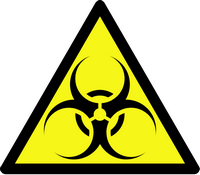A 2008 report entitled "World at Risk" garnered global headlines when it warned that, "It is more likely than not that a weapon of mass destruction will be used in a terrorist attack somewhere in the world by the end of 2013." The report (.pdf), issued by a bipartisan committee established by the U.S. Congress, argued that biological rather than nuclear weapons presents the greatest near-term international terrorism danger. The warnings of the U.S. Commission on the Prevention of WMD Proliferation and Terrorism were underscored by subsequent media reports that dozens of members of Al-Qaida in the Lands of the Islamic Maghreb (AQIM), an al-Qaida affiliate in Algeria, died earlier this year when their attempt to develop a biological weapon went awry. The resulting contamination allegedly killed the researchers at their mountain laboratory hideout. Director of National Intelligence Dennis Blair called the group "a significant threat to U.S. and Western interests in the region" in his Feb. 12 threat assessment (.pdf) to Congress. If terrorists prove able to develop an effective biological weapon, they could potentially kill millions of people. They could also devastate livestock, agriculture, and other potential targets.
Global Insights: Bioterrorism, Al-Qaida, and the Scientific Revolution

